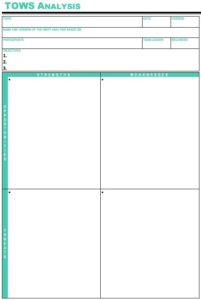12 criteria to become a supplier for Walmart, Target and other mass retailers?
- Business History – Have the company done business with mass retailers previously? If no, then it is a good start. If yes, then why the relationships discontinued? Has the company or its manufacturing factory been in the black list with any of the mass retailers? If the supplier has been in a bad relationship and the issue has not been resolved with one of the retailers, the chance to be qualified as a supplier for any other mass retailers is limited.
- DUNS Number – Supplier needs to have DUNS number for mass retailers to verify company’s credit history, size of company, risk factor, and payment practice. If supplier does not keep a good healthy credit rating with D&B, the retailers won’t take the risk to have business relationship.
- TIN (Federal Taxpayer Identification Number) – All US company has TIN to operate. If you are a foreign company, you are encouraged to establish a company in the US and have the Federal Taxpayer Identification Number. From the mass retailers point of view, it is much easier to have business relationship with US company because both supplier and retailer will be under the same governing laws.
- Insurance – All suppliers are required to carry Commercial General Liability insurance. Depending on products offered, $2M to $10M coverage are needed and some other insurance policies may also be required.
- EDI (Electronic Data Interchange) – The Electronic Data Interchange capability is required to receive purchase order, submit invoice, and ship merchandise.
- GTIN (Global Trade Identification Number) – GTIN is required for company and product identification for doing business with mass retailers.
- Product compliance – All products be complied or exceed with all required governing manufacturing and quality laws and regulations. Most of times, the regulations set up by mass retailers have tougher standard than Federal or State Governments.
- Profit margin and payment terms – Suppliers need to know that mass retailers require higher profit margins and longer payment terms than regular distributors or retailers. Suppliers must analyze their financial burden for doing business with mass retailers.
- Manufacturing facilities – Suppliers need to disclose their manufacturing facilities, local or international, to mass retailers. The costs of production will be increased for a facility to pass all the requirements as a mass retailer qualified factory.
- Extra cost of Sales – There will be predetermined defective charges, tougher return policy, selling price mark-down support, distribution/logistic charges, and all sort of “Charge Back”. Suppliers should take extra care of these unexpected costs.
- Marketing Supports – Depending on product offered, the retailers will require you to market your products through licensing, advertising, and promotions to attract consumers to their stores. If your product cannot generate a certain selling rate per store, you will be expecting more costs to mark down selling prices or returns.
- Distribution and Administration – Mass retailers expect suppliers to deliver merchandises to their nationwide distribution centers and are able to monitor and quick responding to sales, stocking rates, and POS through their vendor system. Suppliers should have staff with experience to handle all administration on the weekly, if not daily, base.
A Tale of Social Compliance That’ll Keep You Awake at Night
It was about Mr. Sheehan’s bed time, a nightcap of fine bourbon on his night stand. He slipped into his 800 thread count bed sheet – although he’s never believed it’s actually 800 threads as advertised – it was soft and cozy, just the way he liked it. He turned on TV to an old rerun of “I Love Lucy,” which had always helped him to sleep with smile. Tonight’s episode was his favorite. In it, Lucy works as a factory worker on the assembly line wrapping the chocolates. It looks like an easy job, but the chocolates on the assembly line outrun Lucy’s hands as she tries to pack them. She ends up flipping and hiding all the chocolates in her mouth, hat, and blouse. He gives a good chuckle, nearly spilling his drink.
Suddenly, Mr. Sheehan’s phone rang. The only person that’d call at this late hour would be his General Manager, Li-Pin, staffed his company’s office in China. And calling with bad news. Not the way he intended on ending his night – but without a choice, he answers the call.
“Boss, we have a problem,” Li-Pin quickly blurted out. “Han’s factory is going to be shut down by Walmart due to severe violations of Social Compliance rules.” Li-Pin’s words tumbled out so quickly that Mr. Sheehan could barely respond.
“What?!” he exclaimed. “Did “China Labor Watch” publish another report on us? Was it another underage worker again? I thought we just did thorough interviews and checkups with all of them last month?”
Wave after nightmarish wave of past violations and Social Compliance issues flooded his mind.
“Or was it an over-time problem? Were there no restroom breaks given? Were there problems with the migrant workers’ documents again? Was–”
“No, sir,” Li-Pin inserted. “This time, err, it was…” He paused, carefully considering his next words.
“You know how you increased the productions of item 53516 due to your big TV commercial and Walmart’s great forecast for this Christmas? The contracted factory’s boss, Han, he thought he could handle it. But, a recent worker shorter forced him to borrow some from his brother’s factory.”
Li-Pin could feel Mr. Sheehan’s temper rising from across the Pacific as he continued.
“See, Boss, yes, we just conducted a Social Compliance inspection with the Disney representatives and WE all passed. We’ve been very careful to watch this ever since China Labor Watch issued its last report on us the past few months. But, Walmart came to the factory with an unannounced Audit.”
“Two of the workers from the OTHER factory were underage. That’s a zero tolerance violation – Walmart just told us to shut down this factory, stop all shipments, and recall the shipment from the last checkup date.”
Mr. Sheehan understood that once Walmart made the call, there would be no turning back. Trembling with anger, he quickly commanded Li-Pin:
“Quickly move all the molds and tooling to another contracted factory. Pay extra for them to start production. I cannot allow shipments to Walmart to stop. We’ll lose millions now, and have losses in chargeback and future sales.”
Li-Pin, shivering, replied:
“Boss, I tried. But Han’s afraid that we won’t pay for his finish goods since he can’t ship them to Walmart. So he’s holding our molds and tooling for ransom. If we don’t pay him first, we won’t be able to move the molds and tools elsewhere.”
As many other owners like Mr. Sheehan have come to learn, a slight oversight on a Social Compliance issue can ruin your business. You can get all the orders you want from Walmart, make beautiful products, promote them on television, pass all the QC/QA tests, and have great logistics for overseas delivery – but you have to obey Social Compliance rules.
Walmart, Target, other retailers, and brand owner and licensors absolutely can NOT afford negative press from China labor issues. They’ve demanded complete factory visibility. www.ChinaLaborWatch.org will demonstrate how seriously retailers like Apple, Walmart, and Disney take this. As long as you are their supplier, they will constantly monitor and carry out surprise inspections on your factory.
Call upon professionals to avoid the consequences tied to Social Compliance. A little careless documentation can ruin your business. Don’t let it happen to yours.








